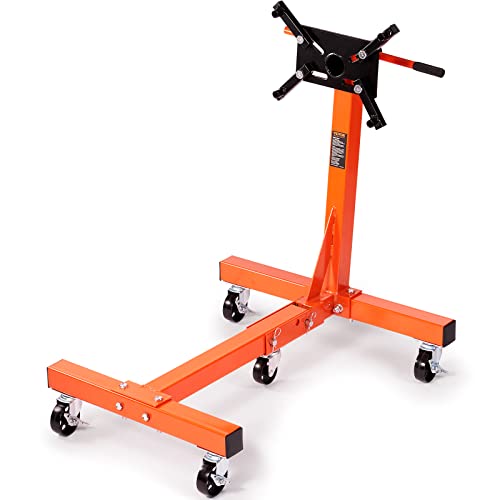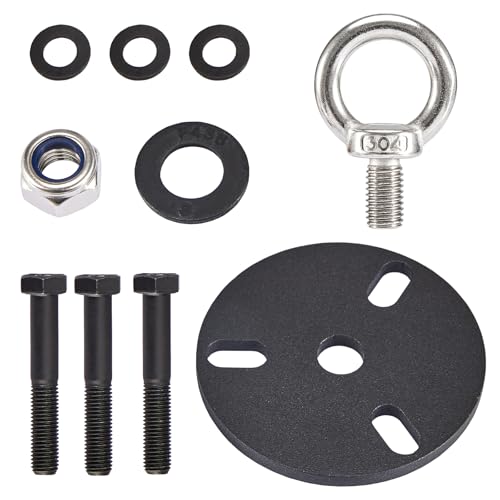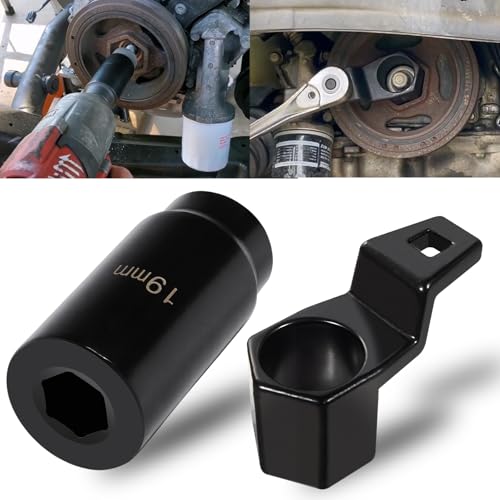Choosing the right electric pool heater is key to enjoying your inground pool all year. Electric pool heaters keep the water warm, making swimming fun any time. We’ll look at top options, focusing on performance, efficiency, and easy setup.
In our electric pool heater reviews, we cover what to look for. This includes BTU output, pool size compatibility, energy efficiency, and installation needs. Knowing this can help you pick the best heater for your pool.
Understanding Electric Pool Heaters
Electric pool heaters work by turning electrical energy into heat. This heat is then transferred to the pool water. This method is both efficient and eco-friendly, beating traditional gas heaters.
There are two main types of pool heaters: direct flow water heaters and heat pump pool heaters. Direct flow heaters quickly warm the pool water, perfect for those who need fast heating. Heat pump heaters, on the other hand, take heat from the air. They are more energy-efficient and work best in warmer climates.
Understanding the costs of electric pool heaters is key. They cost less to run each month than gas heaters. Electric heaters cost between $50 to $100 monthly, while gas heaters can cost $200 to $400. Although electric heaters are pricier upfront, they save money in the long run due to their efficiency.
| Type of Heater | Initial Cost | Installation Cost | Monthly Operating Cost | Efficiency Rating |
|---|---|---|---|---|
| Electric Pool Heaters | $2,000 – $4,000 | $500 – $1,000 | $50 – $100 | 100% Efficiency |
| Gas Pool Heaters | $1,500 – $3,500 | $500 – $1,500 | $200 – $400 | Approximately 84% Efficiency |
In summary, electric pool heaters are a great choice for those looking for efficient and sustainable pool heating. Knowing the different types and how they work can help you make a better decision.
Benefits of Using Electric Pool Heaters
Electric pool heaters offer many benefits. They heat water fast, so you can enjoy warm swimming whenever you want. This is great for cooler months or surprise parties. They might cost more to run than other options, but they’re perfect for small pools or spas.
Electric heaters are also affordable upfront. They’re easy to install and need little upkeep. For pools under 15,000 gallons, they work well and are reliable.
However, electric heaters use a lot of energy. They heat water quickly but can’t keep it warm for long. They’re best for places where you need water warm fast, not for keeping it warm all day.
| Feature | Electric Pool Heaters | Electric Heat Pumps | Gas Pool Heaters |
|---|---|---|---|
| Initial Cost | Medium | Higher | Medium |
| Operating Cost | High | Low | Medium |
| Heating Speed | Fast | Medium | Fastest |
| Maintenance Needs | Low | Medium | Medium |
| Best For | Small pools/spas | All sizes; energy-conscious | Quick heating needs |
In summary, electric pool heaters have their perks. They heat water fast and are easy to care for. They’re a good choice for certain situations, especially when you use energy-saving tips like solar covers.
Types of Electric Pool Heaters
When picking a heating system for your inground pool, knowing the different electric pool heaters is key. You can choose from direct flow water heaters and heat pump pool heaters. Each has its own benefits and uses, fitting different heating needs.
Direct Flow Water Heaters
Direct flow water heaters give you hot water fast, making them great for quick pool heating. They heat water by passing it through an electric element. But, they cost more to run, about $500 a month. Installation can also be pricey, up to $5,000 or more, especially if wiring needs to be updated.
Heat Pump Pool Heaters
Heat pump pool heaters are more energy-efficient than direct flow heaters. They take heat from the air and put it in the water, saving up to 85% of energy, especially in warm weather. They cost about $100 a month to run, making them a budget-friendly choice. Installation costs range from $2,000 to $7,000, which is cheaper than electric resistance heaters. But, they work best when the air is above 50℉.
| Aspect | Direct Flow Water Heaters | Heat Pump Pool Heaters |
|---|---|---|
| Heating Speed | Instant | Gradual |
| Average Monthly Cost | $500 | $100 |
| Energy Efficiency | Lower | Up to 85% more efficient |
| Installation Cost | $1,500 – $5,000 | $2,000 – $7,000 |
| Optimal Temperature Range | Any | Above 55℉ |
Deciding between direct flow and heat pump pool heaters depends on your needs. Think about how fast you need heat and how much you want to save on energy. Knowing the differences will help you choose the best heater for your pool.
Electric Pool Heaters for Inground Pools
Electric pool heaters are a top choice for heating inground pools. They are great for smaller pools or those needing constant warmth. They work well in milder climates.
Choosing the right heater means knowing your pool’s size and heating needs. For example, the Hayward electric pool heater is perfect for larger pools. It uses advanced tech to save energy, reaching up to 99.8% efficiency.
- Electric pool heaters heat water faster than gas models.
- They are easy to install, needing little space and simple plumbing.
- Models like the FibroPool electric pool heater are compact and flexible, fitting various setups.
Energy use is key when choosing a heater. Electric heaters might cost more to run than gas, but they don’t lose heat through exhaust. This makes them a good choice for many. For those who care about the environment, electric heat pump systems from AquaPro and Pentair are a green option.
Deciding on an electric pool heater depends on your needs, budget, and energy goals. With many options, you can find the perfect heater for a year-round swimming pleasure.
Energy Efficient Pool Heaters
Energy efficient pool heaters are key to cutting down on heating costs and keeping your pool comfy. Choosing a heater with a high Energy Efficiency Ratio (EER) can save you money. A higher EER means more energy savings, making your investment worthwhile.
Look for heaters with top energy efficiency ratings. Electric pool heat pumps are especially cost-effective. They work best when it’s between 45ºF to 50ºF outside. They can produce three to seven times more heat than energy used, saving a lot of energy.
In places where keeping the pool warm costs a lot, efficient solutions can make a big difference. Adding a solar cover to your heater can also help. It keeps the heat in during cooler nights and windy days. By using energy efficient heaters and keeping them well-maintained, you can enjoy your pool longer and save on bills.
| Pool Heater Type | Average EER | Average Annual Heating Cost | Potential Annual Savings |
|---|---|---|---|
| Heat Pump | 3.0 – 7.0 | $491 – $1512 | $32 – $300 (compared to gas heaters) |
| Gas Heater | Varies | Higher than heat pumps | N/A |
Choosing energy efficient pool heaters helps you get the most out of your investment. It makes swimming more enjoyable and saves you money in the long run.
Gas vs Electric Pool Heaters: A Comparison
Choosing between gas and electric pool heaters is a big decision. Each type has its own benefits and drawbacks. Knowing these differences helps you make a better choice.
Costs vary between the two. Gas heaters cost between $1,500 and $6,000. Electric heat pumps start at $2,000 and can go up to $6,500. Heat pumps might cost more upfront but save money in the long run.
Heating speed is another key factor. Gas heaters warm water faster, by about 2 degrees per hour. Electric heat pumps take longer, heating water at 1 to 1.5 degrees per hour. This shows a big difference in how they work.
How long a heater lasts is also important. Electric heat pumps can last up to 20 years. Gas heaters, however, need to be replaced every 5 to 7 years. This means gas heaters cost more over time.
Energy use and costs are also key. Electric heat pumps use less energy, costing $50 to $150 a month. Gas heaters cost more, between $300 to $500 a month. This makes electric heaters a better choice for saving money.
Lastly, think about the environment. Electric heat pumps don’t pollute, using clean energy. Gas heaters, on the other hand, release harmful emissions. Choosing electric heaters helps the planet.
In conclusion, picking between gas and electric pool heaters depends on several factors. These include efficiency, cost, lifespan, and environmental impact. By carefully considering these, you can choose the best heater for your pool.
Key Features to Look for in Electric Pool Heaters
When picking electric pool heaters, some features are key for the best performance and savings. Knowing the BTU output and energy efficiency ratings is crucial. It helps ensure you get a heater that fits your needs well.
BTU Output and Pool Size
The BTU output you need depends on your pool’s size. A heater’s BTU output shows how fast it can heat the water. Picking a heater with a higher rating than your pool’s size means faster heating and less time running.
For example, a small pool might need a lower BTU output. But a big inground pool needs a much higher rating for good performance.
Energy Efficiency Ratings
Energy efficiency ratings show how well a heater turns energy into heat. Electric heat pumps are very efficient and great for warmer places. They can save you money on energy over time.
On the other hand, gas pool heaters are cheaper to buy but cost more to run. When looking at efficiency, choose heaters that meet your needs and fit your budget and values.
Top Picks for Electric Pool Heaters
Looking for the best electric heaters for inground pools? Two top picks stand out: the Hayward HeatPro Heat Pump and the Pentair MasterTemp Electric Heater. Each has special features, fitting different pool sizes and heating needs.
Hayward HeatPro Heat Pump
The Hayward HeatPro Heat Pump heats up to 95,000 BTUs, perfect for medium to large pools. It’s efficient, with a high Coefficient of Performance (COP) of up to 6. This means lower costs and warmer water.
- Durability: It has a titanium heat exchanger, fighting off corrosion and lasting longer.
- Electrical Requirements: It needs a 50 or 60 amp breaker, using 240 volts for best results.
- Versatility: It lets you customize for your specific heating needs, saving energy.
It’s a bit pricier at first, but saves money on energy bills in the long run. It’s great for all pool sizes, making it a top electric pool heater choice.
Pentair MasterTemp Electric Heater
The Pentair MasterTemp Electric Heater is perfect for smaller pools. It heats efficiently and is easy to use, allowing quick temperature changes.
- BTU Output: It has 61,000 to 140,000 BTUs, meeting heating needs of smaller and medium pools.
- Compact Design: Its small size makes it easy to install in tight spaces without losing performance.
- Eco-Friendly Features: It meets safety and environmental standards, making it eco-friendly.
This heater is known for keeping pool temperatures steady, making it a top choice for inground pools. Deciding between these high-quality options depends on your pool’s needs and your preferences. Both models show why they’re among the best electric pool heaters.
Installation of Electric Pool Heaters
Installing electric pool heaters needs careful planning and execution. This ensures a safe and efficient setup. The whole process usually takes about two hours, if you have all the materials and tools ready. It’s very important to follow local safety rules and building codes, especially for gas connections.
Before starting, think about your pool’s needs. The size, shape, and how you plan to use it will help choose the right heater. Smaller pools need less powerful heaters. A professional can help pick the best model for your pool.
The installation process has several important steps:
- Find the best spot for the heater, avoiding where other pool equipment is.
- Make the electrical and plumbing connections based on your heater type.
- Check electrical grounding and secure connections for safety.
- Ensure good ventilation for gas heaters to avoid harmful fumes.
- Do safety checks after installation to make sure everything works right.
You don’t need to drain the pool before starting. This can make the installation harder. After it’s installed, the heater will make swimming longer and more enjoyable, even in cooler weather.
Some people try to install it themselves, but hiring professionals is better. They make sure everything follows local codes and works efficiently. This is crucial for indoor pool heaters, which need special placement and connections for best heating.
Pool Heater Maintenance
Keeping your electric pool heater in top shape is key. Regular maintenance boosts efficiency and avoids expensive fixes. It might take some effort, but the rewards are worth it.
Regular Cleaning Techniques
Cleaning your pool heater regularly is a must. Focus on key parts to keep them clear of dirt and buildup:
- Check and clean filters to prevent clogs that reduce efficiency.
- Inspect cartridges regularly and replace them as needed.
- Examine pipes for blockages that could hinder proper water flow.
- Run your heater’s self-diagnostic system, if available, to identify potential issues.
Seasonal Maintenance Tips
Seasonal care keeps your pool heater working well all year. This helps avoid common problems during busy swimming seasons:
- Before summer: Make sure everything is clean and working right. This includes removing any dust or debris.
- Winter prep: If it gets cold, drain the heater and protect it from damage.
- Regularly check water chemistry to keep pH and chemical levels right. This helps prevent corrosion.
- Look at insulation and seals to boost energy efficiency when using the heater.
| Maintenance Task | Frequency | Description |
|---|---|---|
| Filter Cleaning | Monthly | Remove and clean filters to enhance flow and efficiency. |
| Cartridge Inspection | Bi-Annually | Check cartridges for blockages and replace if necessary. |
| Pipe Check | Quarterly | Examine pipes for any obstructions or leaks. |
| Seasonal Setup | Annually | Prepare heater for winter and summer usage, including cleaning and drainage. |
Common Pool Heater Repair Issues
Electric pool heaters are efficient but can still have pool heater repair issues. Knowing these common problems helps homeowners fix them before calling a pro.
Some common problems with pool heaters include:
- Dirty pool filters can lower water flow, making heating less efficient.
- Broken heater switches or wrong thermostat settings stop heaters from working.
- Strange noises like grinding or banging often mean debris or a broken pressure switch.
Troubleshooting electric pool heaters begins with simple checks. Make sure filters are clean and check the heater switches and thermostat. If the heater won’t start, look at the pilot and gas supply valves.
Choosing the right size heater is key for good performance and to avoid future issues. A heater that’s too big or too small wastes energy and increases costs.
Ignoring these signs can lead to safety risks and bigger problems, costing a lot to fix. Knowing when to call a professional is important. Pool heater repair services can fix issues quickly, keeping your heater safe and working well.
Longevity and Warranty Considerations
Understanding the lifespan of electric pool heaters is key when making a choice. They usually last 15 to 20 years with regular care. This is longer than gas heaters, which may only last 5 to 10 years. Solar heaters, on the other hand, can last up to 30 years but are weather dependent.
Parts like gaskets and O-rings, lasting 1 to 3 years, and electrical parts like switches, lasting 3 to 7 years, also matter. They affect your heater’s performance and lifespan.
Warranty is another critical factor. A good warranty offers protection against damage or failure, giving you peace of mind. It can cover the heat exchanger, internal parts, or even replacement costs. It’s important to check the warranty before buying, including its length, what damages it covers, and any maintenance requirements.
In short, considering both the lifespan and warranty of pool heaters is crucial. Regular maintenance can extend your heater’s life. Knowing the warranty details can prevent expensive repairs later. Doing your research ensures you pick a heater that meets your needs and expectations.



